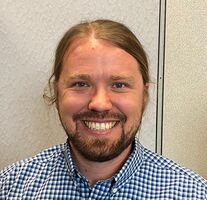Eric Haynie
Haynie, E.
| FirstName / namefirst | Eric |
|---|---|
| LastName / namelast | Haynie |
| MainNamePhon | Eric Haynie |
| SortName | Haynie, Eric |
| bio | Eric came to Santa Clara University with over a decade of experience in higher education. Eric received his PhD in Buddhist Studies from the University of Michigan, where he taught Buddhist and Asian Studies courses, worked with faculty on integrating technology into their teaching, and facilitated interdisciplinary workshops. He also received his M.A. in Religious Studies at the University of Colorado, where he taught religion courses, and his B.A. in Religious Studies from Occidental College. At SCU, Eric coordinates instructional technology support and trainings, and works with faculty in digital media assignment collaborations, course design consultations, and in Technology and Teaching Workshops. |
| Other wikis |
If the page does not yet exist on the remote wiki, you can paste the tag |
Full Name
Eric Haynie
Affiliation
Center for South Asian Studies
Center for Chinese Studies
Education
B.A., Occidental College, 2007
M.A., University of Colorado - Boulder, 2013
Other Information
Eric's research interests pertain to Tibetan Buddhist literature and practice, including 17th century religious and intellectual histories, advice texts and Tibetan literary genres, and the religious and social milieu of Buddhism outside the monastery.
Within the study of religion, Eric is interested in the intersections of language and power, theories of body, ritual, and ritualization, and the history (and future) of Religious studies as a discipline.

